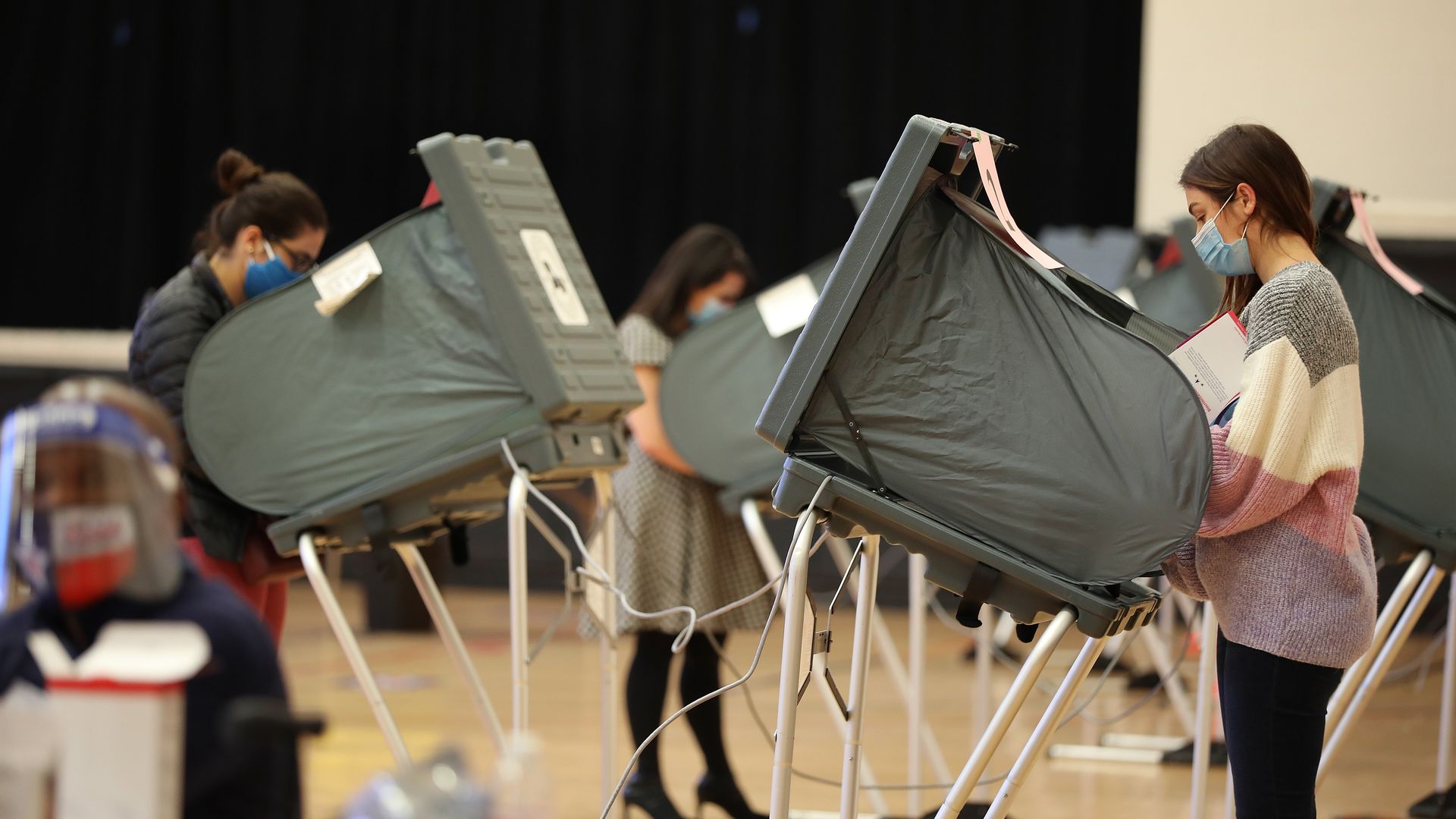Nov 4, 2021 - Politics & Policy
DOJ sues Texas over "unlawful and indefensible" voting restrictions
Add Axios as your preferred source to
see more of our stories on Google.

Voters cast ballots for the 2020 election at a polling location in Houston, Texas. Photo: Sharon Steinmann/Bloomberg via Getty Images
